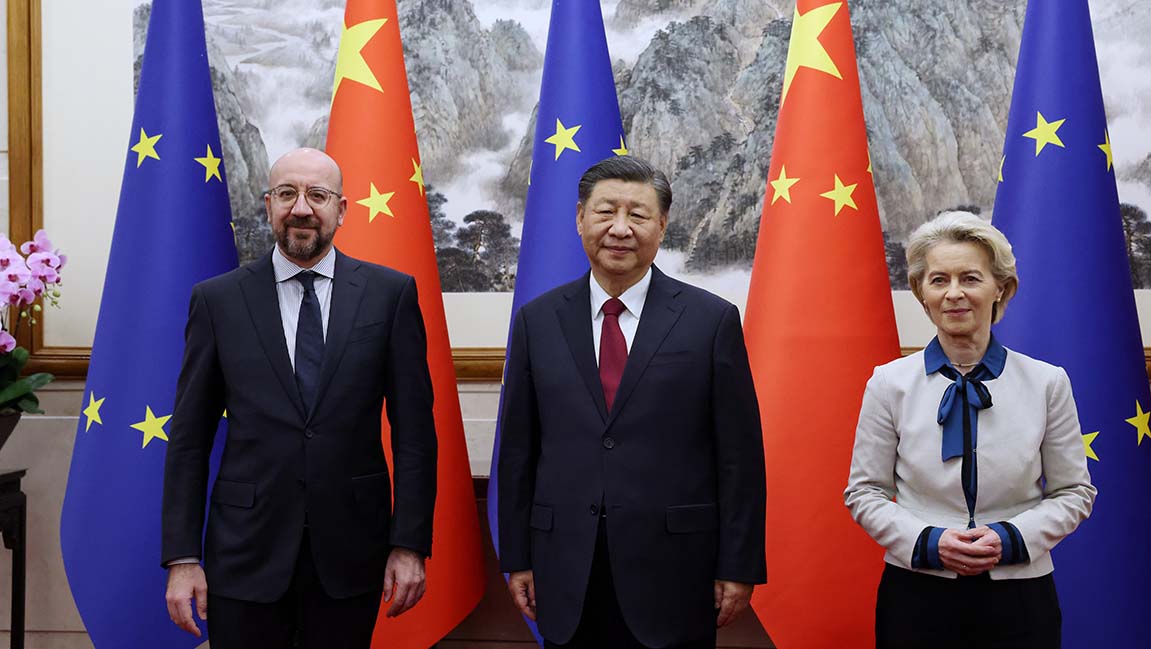
Chinese President Xi Jinping conveyed a message of cooperation over confrontation to EU leaders, highlighting the imperative for mutual understanding between China and Europe.
Despite a four-year hiatus in high-level discussions, China expressed eagerness to integrate European nations into its future plans, particularly in economic and technological realms. However, this visit wasn’t without controversy, as Xi cautioned against adopting confrontational approaches while pledging to elevate the EU’s status as a significant trade partner.
The summit comes amid growing unease within the EU regarding China’s efforts to drive a wedge between Europe and the West. Europe’s increasing economic dependence on China has raised concerns, with the trade deficit reaching a staggering 400 billion euros last year. Brussels remains critical of China’s stringent market access policies, citing challenges faced by European countries seeking entry into Chinese markets.
Despite China’s assertiveness, its post-coronavirus economic recovery and aspirations to challenge the United States appear to have tempered its stance, signaling a willingness to engage in discussions and potentially soften its approach. President Xi’s proposed collaborations in cutting-edge areas like artificial intelligence hint at a potential shift in the China-EU dynamic, offering a moment for dialogue and mutual understanding.
Yet, past disappointments, including China’s reluctance to address EU concerns such as withdrawing support for Russia amid the Ukraine conflict, have left the EU skeptical about the tangible outcomes of this meeting. Expectations for a joint statement are low, reflecting the persistent complexities within the China-EU relationship. As China navigates its economic landscape and global ambitions, uncertainties persist regarding its responsiveness to EU concerns, underscoring the delicate nature of this critical diplomatic relationship.







